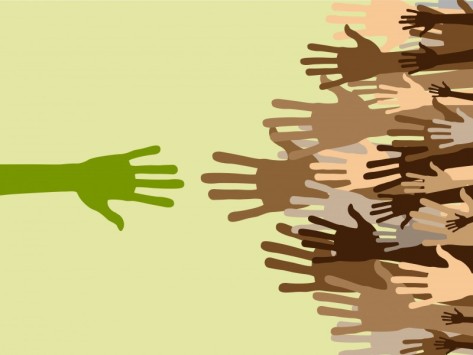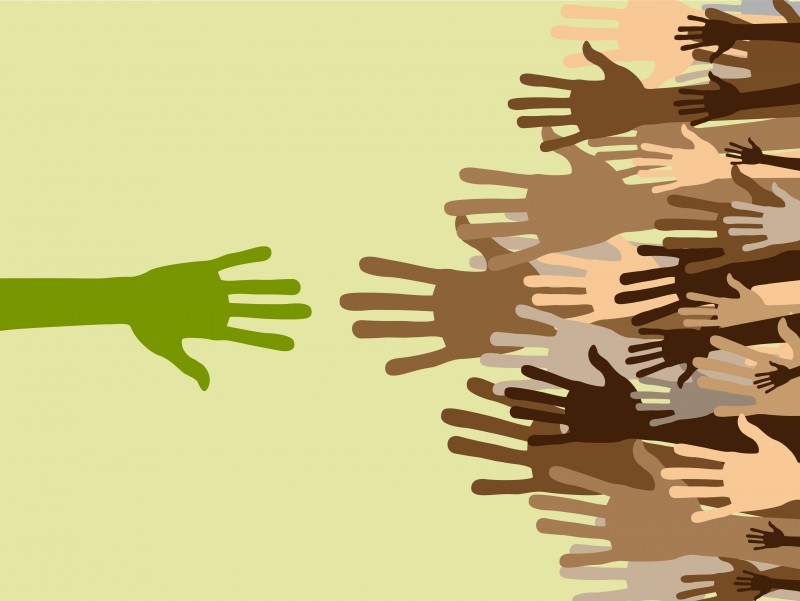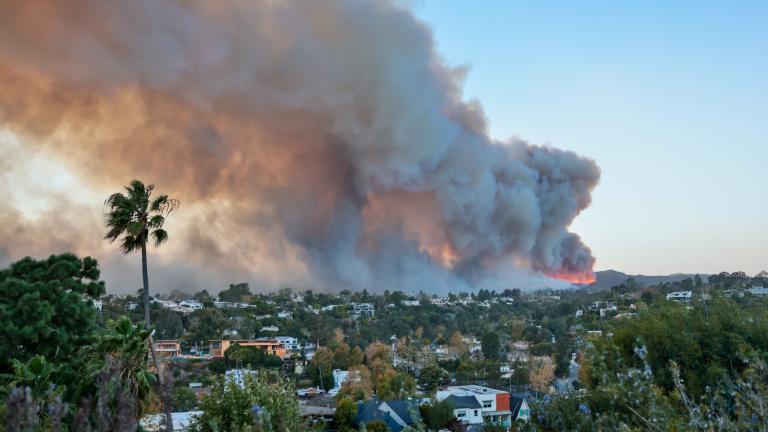 “Where are you from?” I was often asked that question while growing up in Southern Indiana in the 1970s. I didn’t look like anyone else in my white hometown and people had a hard time believing I belonged there. I hated the question, but for them it was a polite way of dealing with their confusion over how the hell a biracial Asian girl ended up in their community.
“Where are you from?” I was often asked that question while growing up in Southern Indiana in the 1970s. I didn’t look like anyone else in my white hometown and people had a hard time believing I belonged there. I hated the question, but for them it was a polite way of dealing with their confusion over how the hell a biracial Asian girl ended up in their community.
“Where are you from?” is the question I thought people were thinking when I sat through a Western Climate Initiative stakeholder meeting last spring, once again in a place where I didn’t look or sound like everyone else. Sitting next to me was a white guy in a starched, button-down shirt representing the petroleum industry. Then there were other corporate types right out of central casting vying for their stakeholder interests. And finally a small cadre of passionate environmentalists who spoke in terms I didn’t yet understand, like “greenhouse-gas emissions,” “carbon offsets,” and “cap and trade.”
I had spent most of my career fighting for economic justice, working with people of color and those with lower incomes. Their struggle is to keep food on their tables, a roof over their heads, and access to social services, while clawing at their chance for the American Dream. Back in the mid-1990s, I founded what became Washington state’s largest anti-poverty organization. We mobilized thousands of people with low incomes to raise their voices for change and won significant victories.
So why was I in this room discussing carbon emissions? Because climate change is an economic-justice issue. Regardless of how our government ultimately decides to handle climate change policy, poor people will be affected. They can be included in the new clean energy economy or they can be further pushed out in the cold.
What do I mean by that? Doing nothing on climate will only make things worse for the poor and people of color in this country. The result of decades of inaction on this issue has already dramatically affected the lives of people: from more intense hurricanes that disproportionately hit people who cannot escape the rising tide, to the higher cost of food in a fossil fuel–driven economy, to heat waves that often trap the elderly in stifling apartments.
Even doing something, unless done right, can be harmful. Because climate legislation is intended to provide market signals to encourage energy efficiency and the development of clean alternatives to fossil fuels, any effective legislation will necessarily result in higher prices for fossil-fuel energy and energy-related goods. Those higher prices, if left unaddressed, would hit low- and moderate-income households hardest, because necessities like gasoline, food, and home-heating costs take a much bigger bite out of their pocketbooks than those of wealthy households. Low-income families are also less able to respond to higher energy prices by conserving energy because they do not have the capital to invest in more energy-efficient appliances and vehicles.
The Congressional Budget Office estimates that without consumer relief, low-income households would see their costs increase by an average of $425 per year as a result of climate legislation. This is money that families earning $16,000 a year simply can’t spare. Unless these costs are offset, the purchasing power and living standards of these lower-income consumers could fall significantly over time.
Fortunately, the opportunities for people living in poverty are abundant if we design an effective and equitable climate policy. Doing so will improve the lives of many in the U.S. and will better position the Obama administration to be a leader as our nation engages in an international discussion on addressing global warming in Copenhagen this December.
The House of Representatives has already taken the lead by designing climate policy that would not drive low-income households further into poverty. The bill that passed in the House established a key principle that low-income Americans as a group must be no worse off because of the higher prices associated with climate legislation. On top of the relief all households—regardless of income—would receive on their utility bills, the House bill includes a climate rebate for families and individuals in the lowest income quintile that would compensate for increases in energy costs as well as other necessities. These provisions send a strong message about the importance of protecting low-income households from the costs of climate legislation. The House bill takes an efficient and effective approach to making sure we reach the right people by using two existing systems:
- The electronic benefit transfer (EBT)—This system already delivers food stamps and other assistance to a broad range of low-income people, including those who are not part of the tax system, usually through a debit card.
- The Earned Income Tax Credit—This is a refundable energy tax credit for low- and moderate-income households that are already in the tax system, including low-income childless workers.
Neither approach on its own is sufficient; however, in combination, they reach the overwhelming majority of the lowest-income households. This direct relief must be in addition to any indirect compensation that may be provided through electric and gas utility companies. Because the majority of the additional cost for people with lower incomes would come from areas other than home utility bills, relief solely through utility companies is inadequate.
As the Senate begins to take action on climate, it is critically important that, at a minimum, it maintains the same commitment adopted by the House to fully protect the lowest-income people from net cost increases.
In addition to protecting low-income consumers, climate change policy also provides the opportunity to make investments that can move people out of poverty. Along this vein, there’s been a lot of attention paid to the term “green jobs” in the climate debate. And this is an exciting possibility for real change in our economy and for workers in the U.S. However, for green jobs to live up to expectations, the jobs created must be unionized and pay a living wage, with focus on training and employing people living in poverty and people of color.
Passing climate legislation this year is a necessary and crucial step in controlling greenhouse-gas emissions and encouraging the development of renewable-energy technologies that will create these green jobs. As people living in poverty in the U.S. and around the globe are increasingly and disproportionately harmed by global warming, the obligation is on the democratically elected representatives in our rich nation to act with courage.
As leaders from around the world gather in Copenhagen to tackle the challenge of reducing global-warming pollution, an important question they will want to ask each other is, “Where are you from?” And because of the shared risks of climate change, all the answers should be identical: “The same place as you: planet Earth.”



